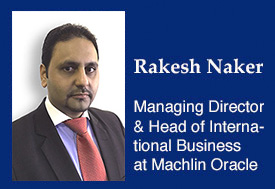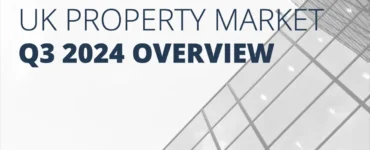
By Rakesh Naker, Head of International Business at Machlin-Oracle (part of Oracle Capital Advisors)
Over the years, it has been very difficult to map the true wealth that has been generated in South Korea. In addition to a general reluctance of the High Net Worth (HNW) & Ultra High Net Worth (UHNW) families to go public about their wealth, there is a unique Korean wealth hierarchy which has no other similar structure in the world. In comparison with other Asian countries like China and Indonesia, the coverage and knowledge of the super wealthy in Korea has been kept out of the spotlight to a certain extent. However if we look closer into its UHNW segment, it becomes a true revelation for the rest of the world and there is huge potential for the wealth management industry and family office businesses as a whole, explains Rakesh Naker, Head of International Business at Machlin-Oracle (part of Oracle Capital Advisors).
Family conglomerates in Korea are called Chaebols, and they came into existence in the 1960’s when President Park Chung Hee came to power, and helped South Korea start its rapid rise to becoming a major industrialised nation. The Chaebols wealth rose rapidly during the 1980’s and 1990’s, but in turn, this has led to the gap between the rich and poor widening, especially since the Asian financial crisis in the late 1990’s. To put this into perspective, the 2015 OECD report states that the top 20% of the population earned nearly 6 times as much as the bottom 20% of the population.
This is primarily due to the fact that the Chaebols have flourished to make Korea the economic powerhouse that it is today. This is further evidenced by the fact that there are approximately 20 billionaire families in South Korea, and nearly 100 families with assets greater than $250m, out of a population of nearly 50m people. Furthermore, the richest family in Asia in 2015, according to Forbes, was a South Korean family, with a combined wealth of over $26bn. This family’s net revenues in 2014 amounted to nearly 22% of Korea’s GDP alone.
In turn the number of Ultra High Net Worth (UHNW) people (classed as those with wealth greater than US$50m in net assets) has grown to approximately 1,800, as of 2015. However when you compare this to the rest of the Asia Pacific region, which has just under 16,000 UHNW families, South Korea with around 11% of the Asia Pacific wealth, still has a way to go.
Traditionally when wealth is generated, it is put back into the family’s operating businesses, which in turn has helped to create the conglomerates that we are familiar with today. This is how the Chaebols have grown over the years and this is a normal, traditional practice but in turn this opens up a door of opportunity.
Due to the tradition of recycling profits back into the operating businesses, these UHNW families are now seeking advice and guidance on how to segregate their wealth out of the business and put it aside for “a rainy day”. Furthermore, the concept of a Family Office is still fairly new in Korea and Asia as a whole. Where some Family Offices exist, the structure is more likely to be dominated by the family members, which is in contrast to the normal operating structure seen in the Western world. This in turn means that the concept of segregation can be lost as independent advisors are not engaged to the fullest extent. However this trend towards a more professional structure is starting to change in conjunction with generational change, where the existing Family Offices are now looking outward for guidance and support. This has been supported hand in hand, with the continued growth of the Chaebols looking to the international markets for further opportunities to stoke the fires of their growth.
Currently these Family Offices tend to operate on a 2-tier structure. The 1st tier still encompasses the family involvement in the investment process, as the family money and the business money is being considered as one for potential investments. These tend to be more on the physical asset side like acquiring businesses, or real estate etc and whereby once the investment is made, the shareholding in the investment is allocated accordingly between the business and the family office. The 2nd tier then is where local expertise within target markets is engaged to give a more professional insight. However, this trend is changing where actionable opportunities exist.
These Family Offices are now becoming more open to engaging with proven professionals on a more permanent basis to help advise them on potential investments outside of Korea. This is also being segregated more and more from the business and allowing for more standard financial investments to be made purely on the personal wealth side, while still retaining the Family Office to assist the beneficial owners with more business investments.
Now that the home markets have become slightly more saturated than before, the Chaebols have started to become global players, which in turn means that the depth of their experience has grown allowing a greater appreciation of different models and thoughts. This in turn is allowing the idea of the Family Office, to grow and evolve into the model that we are more familiar with in the West. Though this transition is happening, it is a process that will take some time, as there are several generational layers to go through to get agreement and acceptance from.
At Oracle Capital Advisors, from our significant experience of the Emerging Markets, especially within the GCC and Asia regions, we believe that South Korea will become one of the top hot spots for the Family Office industry in the coming years. This opportunity lies in understanding the situations where a Patriarch wrestles with the need to devolve power whilst making assessments on new thinking and opportunities. In order to gain their trust, the industry needs to translate their various experiences into tailored advice that reflects modernity and proven business practices whilst respecting the unique flavour of the Chaebols.
About Rakesh Naker,
Head of International Business at Machlin-Oracle (part of Oracle Capital Advisors)
Rakesh has 16 years of experience of Private Banking, having worked in senior positions for international banks throughout his career in the UK and Middle East. His core expertise lies in the Private Banking & Asset Management arena but he has also spent some time working on Corporate & Investment Banking transactions during his career.
He has a very entrepreneurial & business focused mind-set and also maintains a strategic outlook on all opportunities. He has been successfully managing client monies for many years in excess of US$ 500 Million and has a proven track record in delivering results for his clientele.
Rakesh has previously worked for Man Group, Credit Suisse, Societe Generale and Liechtenstein LandesBank amongst others during the course of his career. In addition he laterly set up his own firm, Priamos Capital Advisors in Dubai.



